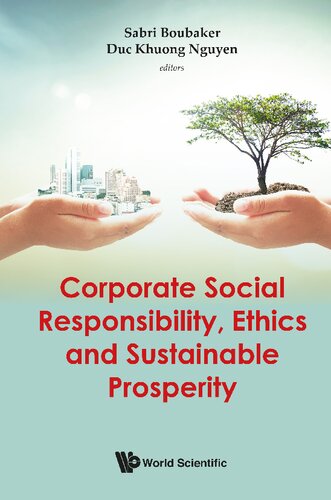

Most ebook files are in PDF format, so you can easily read them using various software such as Foxit Reader or directly on the Google Chrome browser.
Some ebook files are released by publishers in other formats such as .awz, .mobi, .epub, .fb2, etc. You may need to install specific software to read these formats on mobile/PC, such as Calibre.
Please read the tutorial at this link: https://ebookbell.com/faq
We offer FREE conversion to the popular formats you request; however, this may take some time. Therefore, right after payment, please email us, and we will try to provide the service as quickly as possible.
For some exceptional file formats or broken links (if any), please refrain from opening any disputes. Instead, email us first, and we will try to assist within a maximum of 6 hours.
EbookBell Team

4.7
56 reviewsCorporate activities are not only drivers of economic growth but also key actors of the changes towards more sustainable markets and environment as well as inclusive development. Significant efforts have recently been devoted to transform private and public firms alike from pure economic-oriented organizations to entities that deliberately and diligently create value without neglecting social and environmental implications of their activities. Firm performance, resilience, and survival are nowadays, more than ever before, dependent on how they consciously and purposefully engage in appropriate corporate social responsibility (CSR) strategies and actions.
This book, Corporate Social Responsibility, Ethics and Sustainable Prosperity, will provide all readers, including investors, managers, lawmakers, and policymakers with an up-to-date, comprehensive, and thoughtful coverage of CSR and ethical issues at the crossroads of different finance and management disciplines. It contains a rich collection of insightful studies covering a wide range of topics in corporate ethics, CSR, and sustainable prosperity. Together, these studies help readers deepen their knowledge on different country environments and various organizational forms, policies, and activities. The book is composed of 16 chapters which are divided into two interconnected parts: Part I addresses ESG and ethical issues in corporate decision-making, while Part II provides insights towards sustainable prosperity.